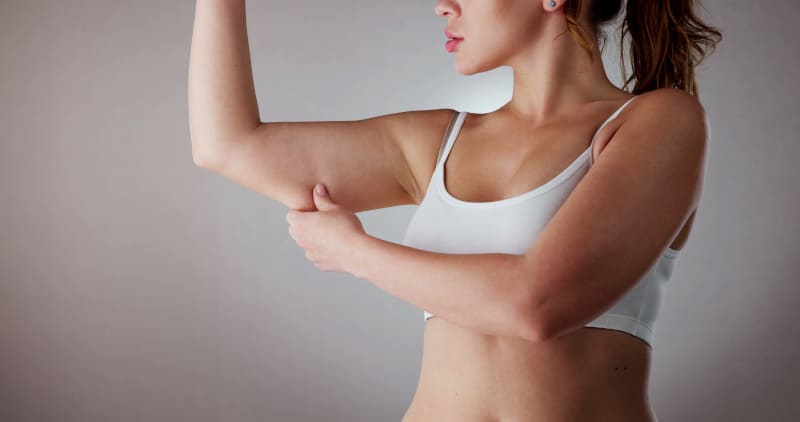Did you know that it is entirely normal to body check and that almost all of us do it? However, body checking can become an unhealthy habit and is often associated with eating disorders.
What’s Body Checking?
Think about what you do before you go out the door to school, work, or meet your friends at a coffee shop. You stop in front of the mirror to check your hair and outfit. When buying clothes at the mall, you parade in front of your friends in the changing rooms and ask for their approval.
Body checking is merely an action people do to gain information or details about their physical appearance, including their size, shape, or weight.
When Is Body Checking a Problem?
Body checking becomes a problem when it becomes frequent or compulsive and negatively affects your body image (1). Body image is how you see yourself in your mind.
Instead of a quick check in the mirror or a weekly weigh-in, you begin to do these activities multiple times during the day:
- Gazing at yourself in the mirror, looking for stomach distension and bulges
- Measuring your wrist size and pinching your belly
- Weighing yourself before and after meals
- Trying on clothes to check your size
- Comparing your body size with your peers or with images on social media
- Taking multiple selfies and scrutinizing them
- Doing “skinny check” challenges on TikTok and Instagram (2)
Rather than feeling better about yourself, you become more dissatisfied with your body image—your weight, size, and shape.
Body Checking and Eating Disorders: How Are They Related?
So, how are body checking and eating disorders related? Nobody really knows why people develop anorexia and bulimia. You may have inherited the genes from your parents, or something biological happened, such as alterations in your brain chemicals (3). However it happened, research studies show a connection between body checking and the development and continuation of an eating disorder.
Body checking is associated with the following:
- Feeling dissatisfied with your body or parts of your body
- Thinking you’re fatter than you are
- Restricting what you eat
- Being afraid of gaining weight
- Having anxious feelings
Body checking briefly takes away your anxious feelings, but then they return. The longer you participate in body checking, the more it negatively affects how you think about yourself and makes it harder to overcome your eating disorders.
Before you think that you’re the only one experiencing this—people everywhere who don’t suffer from eating disorders also struggle with disliking their body parts when they body check too much. We find imperfection in anything we hyper-focus on.
How Can You Prevent Body Checking?
Compulsive body checking can become a vicious cycle that you’re caught in. You body check to relieve your anxiety, but continuing to body check only increases your negative self-image.
You know you need to break the cycle, but what can you do about it?
- Acknowledge the problem. Acknowledging that you are struggling with body checking is the first step to changing your behavior patterns.
- Take a social media vacation. Social media platforms are the human version of offering bees a field of flowers. You get sucked into their power and magnetism—and very few of us can stop scrolling once we sign in. Block TikTok and Instagram for a few weeks or months.
- Notice cues and antecedents. An antecedent is a thing or event that precedes a behavior—a signal that triggers body checking. Over the next few days, stop and analyze what happened just before you did a body check. Was it walking past a mirror or before you rolled out of bed in the morning? Consider putting the mirror in an out-of-the-way location and doing stretching exercises in bed instead of body checking when you wake up.
- Understand that body checking can become a bad habit. If you are on the road to recovery but are wondering why your body-checking habit hasn’t followed suit, consider that it may be more of a pattern than a need (4). Use the suggestions in #3 to change your habits, and read some books on forming new habits to replace the old.
- Reach out for help. Recognize that all of us need help at some time. Toledo Center for Eating Disorders has empathetic staff and a treatment plan just for you. Call us at 419-885-8800 or fill out our contact form.
Recognizing your body checking patterns is the first step on your path to healing from an eating disorder. Breaking the cycle takes effort and courage, but you don’t need to be alone. Hang in there and reach out for help.
References
- Opladen, V., Vivell, M-B., Vocks, S., & Hartmann. A. S. (2022). Revisiting the postulates of etiological models of eating disorders: Questioning body checking as a longer-term maintaining factor. Frontiers in Psychiatry, 12. https://doi.org/10.3389/fpsyt.2021.795189
- Moniuszko, S. M. (2021, December 10). ‘Very concerning’ body-checking trends have made their way to TikTok. USA Today. https://www.usatoday.com/story/life/health-wellness/2021/12/10/body-checking-trends-showing-up-tiktok-experts-express-concern/6446604001/
- National Eating Disorder Information Center. (2022). How does someone develop an eating disorder? https://nedic.ca/general-information/
- Bijsterbosch, J. M., Keizer, A., Boelen, P. A., van den Brink, F., & Sternheim, L. C. (2022). Understanding relations between intolerance of uncertainty and body checking and body avoiding in anorexia nervosa. Journal of Eating Disorders, 10(1), 1–10. https://doi.org/10.1186/s40337-022-00647-1
Bio:
Alice Blackmore, MN, RN, Content Writer
Alice Blackmore is a freelance writer, registered nurse, and owner of Insightfulnursing.com. She has expertise in pediatrics, maternal health, critical care, and long-term care. She now shares her years of experience through writing.

